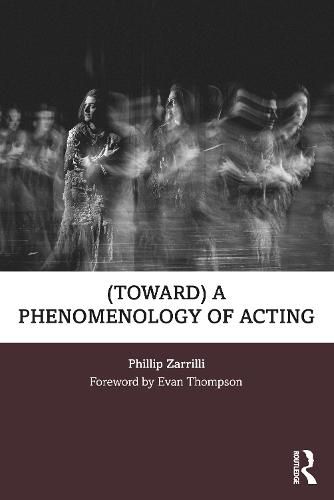Readings Newsletter
Become a Readings Member to make your shopping experience even easier.
Sign in or sign up for free!
You’re not far away from qualifying for FREE standard shipping within Australia
You’ve qualified for FREE standard shipping within Australia
The cart is loading…






In (toward) a phenomenology of acting, Phillip Zarrilli considers acting as a ‘question’ to be explored in the studio and then reflected upon.
This book is a vital response to Jerzy Grotowski’s essential question: How does the actor ‘touch that which is untouchable?’ Phenomenology invites us to listen to the things themselves , to be attentive to how we sensorially, kinesthetically, and affectively engage with acting as a phenomenon and process. Using detailed first-person accounts of acting across a variety of dramaturgies and performances from Beckett to newly co-created performances to realism, it provides an account of how we ‘do’ or practice phenomenology when training, performing, directing, or teaching. Zarrilli brings a wealth of international and intercultural experience as a director, performer, and teacher to this major new contribution both to the practices of acting and to how we can reflect in depth on those practices.
An advanced study for actors, directors, and teachers of acting that is ideal for both the training/rehearsal studio and research, (toward) a phenomenology of acting is an exciting move forward in the philosophical understanding of acting as an embodied practice.
$9.00 standard shipping within Australia
FREE standard shipping within Australia for orders over $100.00
Express & International shipping calculated at checkout
In (toward) a phenomenology of acting, Phillip Zarrilli considers acting as a ‘question’ to be explored in the studio and then reflected upon.
This book is a vital response to Jerzy Grotowski’s essential question: How does the actor ‘touch that which is untouchable?’ Phenomenology invites us to listen to the things themselves , to be attentive to how we sensorially, kinesthetically, and affectively engage with acting as a phenomenon and process. Using detailed first-person accounts of acting across a variety of dramaturgies and performances from Beckett to newly co-created performances to realism, it provides an account of how we ‘do’ or practice phenomenology when training, performing, directing, or teaching. Zarrilli brings a wealth of international and intercultural experience as a director, performer, and teacher to this major new contribution both to the practices of acting and to how we can reflect in depth on those practices.
An advanced study for actors, directors, and teachers of acting that is ideal for both the training/rehearsal studio and research, (toward) a phenomenology of acting is an exciting move forward in the philosophical understanding of acting as an embodied practice.